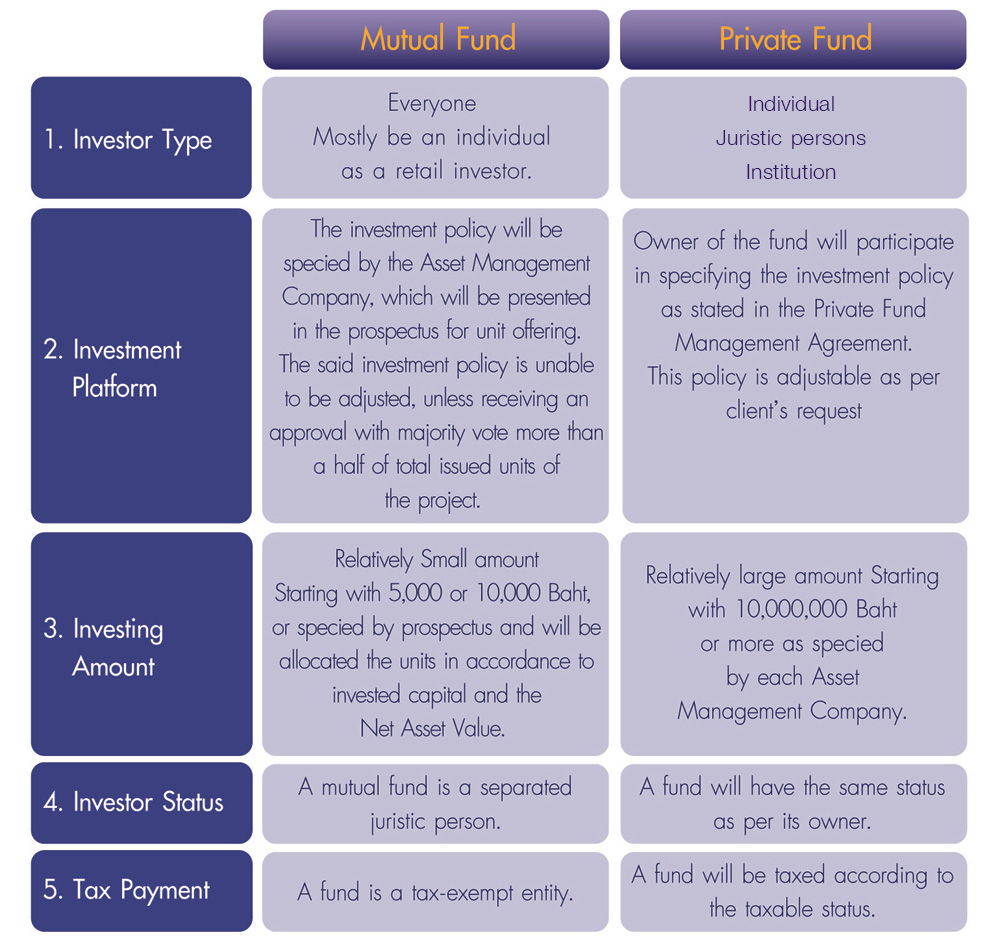
The managing of investments for clients who may be an individual, a juristic-persons or institution that has delegated an investment management company to perform these duties on their behalf. The client can take part in the establishment of the investment policy, investment objectives, and restrict risks within acceptable levels in the effort to obtain the best returns and benefits desired by the client. The investment management company will be involved in the asset allocation process, securities selection and determination of the appropriate timing of investments while taking into account the guidelines and investment limits prescribed by a written contract formed with the client. The portfolio structure has excellent flexibility and can be easily modified to match each client’s needs.
The client has ownership in the assets or fund which remain in the client's name while the investment management company's name is shown concurrently to indicate that it is being authorized to manage the client's investments on his/her behalf. Tax obligations associated with the investments will be according to the client's tax status.
Upon being appointed the fund manager, the investment management company shall appoint a “custodian” that has been approved by the Securities and Exchange Commission to safe keep the client’s assets and keep track of benefits associated with the securities invested by the private fund.
The client may consider investing in bank deposits, government debt securities, corporate debentures, equities, unit trusts of various mutual funds, property funds, and infrastructure funds, including derivatives and alternative investments, in either domestic or foreign markets.
Fees to cover the management of the private fund (Management Fee)
Fees to safekeep the assets (Custodian Fee)
Other fees such as stamp duty, brokerage fees, audit fees (if any), etc.
